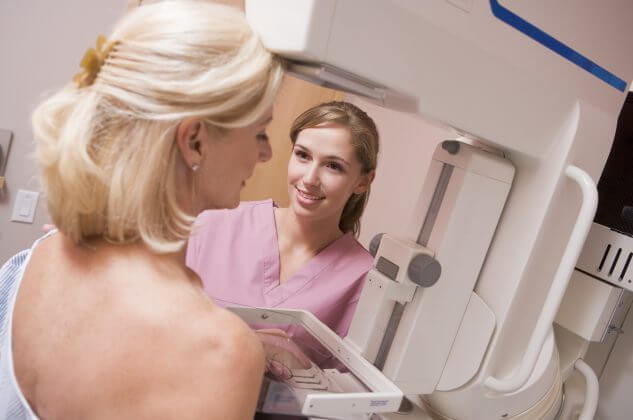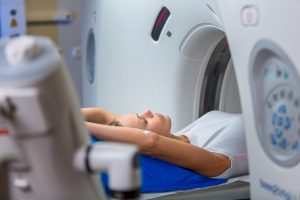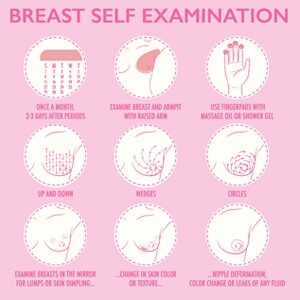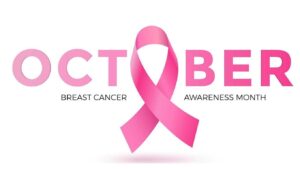
1 October 2021
October is Cancer Awareness Month and Williamsons are always proud to help increase awareness.
What is breast cancer?

Breast cancer starts in the breast tissue, most commonly in the cells that line the milk ducts of the breast. It is the most common cancer in the UK. It mainly affects women, but men can get it too.
Breast cancer symptoms
The first symptom of breast cancer most people notice is a lump in their breast or some thickening.
Breast symptoms to look out for:
- a new lump or thickening in your breast or armpit
- a change in size, shape or feel of your breast
- skin changes in the breast such as puckering, dimpling, a rash or redness of the skin
- fluid leaking from the nipple in a woman who isn’t pregnant or breast feeding
- changes in the position of the nipple
What is breast awareness
Being breast aware means getting to know how your breasts normally look and feel. This may change at different times of the month.

The NHS has produced a 5 point plan for being breast aware:• know what is normal for you
- look at and feel your breasts
- know which changes to look for
- see your doctor about any unusual changes
- attend screening if you are 50 years or older
When to examine your breasts

Some women have lumpier breasts around the time of a period. If this is the same in both breasts, don’t worry. But check your breasts again the following month, a few days after your period is over.
If the lumpiness comes and goes with your menstrual cycle, it is nothing to worry about.
Your breasts usually feel softer and not as lumpy if you no longer have periods.
What to look for

Most people naturally have one breast bigger than the other and this is normal.
Changes to look for:
- a new lump or thickening in your breast or armpit
- a change in size, shape or feel of your breast
- skin changes in the breast such as puckering, dimpling, a rash or redness of the skin
- fluid leaking from the nipple in a woman who isn’t pregnant or breast feeding
- changes in the position of nipple
The importance of catching breast cancer early
- Spotting cancer early increases the chances of survival
- Diagnosing cancer before it has the chance to spread too far means that treatment is more likely to be successful
- You know your body best, so talk to your doctor if something doesn’t seem right.
Impact of the Coronavirus Pandemic on breast cancer patients
Unfortunately, as a result of the Coronavirus Pandemic there has been a number of breast cancer patients being diagnosed at a later stage, and missing out on potentially life saving treatment. The following has been noted:
Cancer Research UK have analysed NHS England figures which show around 38,000 few cancer patients began treatment in April 2020 – March 2021 when compared to the previous year.
- 10,600 of these are thought to be breast cancer patients.
- The majority of those that have missed out on treatment are likely to be those who have not yet been diagnosed, who would usually be picked up at an early stage.
- A significant factor is the pause in breast cancer screening – in the 1st wave almost 1 million women in Britain missed a breast cancer screening appointment (according to charity Breast Cancer Now).
Other factors have also contributed such as a reluctance to burden the NHS and fear of catching Covid in a Hospital setting. - Previously in the UK good progress has been made in reducing the amount of deaths from breast cancer, this has fallen by almost 40% since 70s however, this downwards trend is now at risk.
- Trend is now likely to be people presenting with more advanced and complex diseased with a worse prognosis.
A recent article from The Guardian highlights the fears that breast cancer deaths may rise as a result. To read more on this article please click here.

In her autobiography, Harding wrote about how she initially put off getting medical advice when she first found lumps under her arm in December 2019.
She eventually saw a doctor who advised her to schedule an MRI scan – but then “coronavirus hit and everything either went into slow motion or stopped altogether”, she wrote.
“I was aware that I needed to get this health issue sorted, but with everything that was going on, it was tough.”
To read more about the death of Sarah Harding, please click here.
A further celebrity, Julia Bradbury, presenter of Countryfile, has also confirmed she is suffering from breast cancer, and is to undergo surgery, including a mastectomy in October 2021. She has urged the need for women to check their breasts on a regular basis, and highlights the importance of early diagnosis.
To read more on Julia’s diagnosis, please click here.
Here at Williamsons we are assisting a number of clients who have sadly been misdiagnosed with breast cancer. Please read the following case studies for information on two of these cases.
Case of Mrs Z
Wayne Walker and his team are dealing with a case that has recently entered Court Proceedings.

Due to the type of cancer, reliance on an ultrasound scan was an inappropriate method of diagnosis. Diagnosis of invasive lobular breast cancer often depends upon clinical suspicion and examination, and subsequent needle biopsy. Over-reliance on the ultrasound and the discounting of clinical findings has led to the diagnosis of breast cancer being missed.
A newly referred patient to a clinic with a lump associated with early nipple retraction, the opinion of someone more senior within the breast clinic team should have been sought.
As a result of the failure to perform further investigations in 2015 and the failure to offer a follow-up review, our expert is of the opinion that there was a delay in the diagnosis of breast cancer of approximately one year. On the balance of probabilities, with earlier diagnosis, there would not have been lymph node metastasis.
The case is ongoing.
Case of Mrs X
We are also currently dealing with a claim where our client suffered a delay in diagnosis of left sided breast cancer for over a period of 2 years, which resulted in our client undergoing a mastectomy.
Our client had felt a lump in her breast and sought the advice of her GP. Her GP referred her to a breast clinic. She was told that the lump was a cyst, this was drained, and she was discharged.
Nine months later, our client found another lump in her breast, which hurt a little, and was again referred to the breast clinic; she was reassured and discharged.

Our client attended her GP and an urgent referral was made to the breast clinic. She was told that there was nothing sinister going on and again was discharged.
Another nine months passed; our client continued to suffer with a painful, dense feeling breast. She saw her GP who sent an urgent referral to the breast clinic. On this occasion our client saw a different surgeon at a different breast clinic. A biopsy of the breast was carried out. The results came back, and it was confirmed to our client that she had Ductal Carcinoma (breast cancer) in situ which was widespread throughout her breast. The surgeon recommended that a mastectomy be carried out, which would also result in the loss of her nipple.
Our client went ahead with the mastectomy, and a reconstruction of her nipple was carried out a year later.
Had our client’s breast cancer of been spotted earlier and had our client’s continued concerns have been properly investigated, the cancer would not have grown so large and lesser surgery would have been required, meaning that mastectomy could have been avoided.
Our client now suffers from severe low self-esteem. She feels that her reconstructed breast is heavier than her natural breast which makes her feel unbalanced. She feels that her natural breast is empty compared to her reconstructed breast and is overall dissatisfied by the appearance of her reconstructed breast. She cannot wear certain clothes and no longer feels pretty as she did before.
To address our client’s dissatisfaction in terms of the appearance of her reconstructed breast, our medical expert has suggested two relatively small operations:
1) To increase the volume in her natural breast by way of inserting an implant or alternatively by way of fat grafting;
2) The appearance of our client’s reconstructed breast could be improved by fat grafting which would smooth out and disguise the implant edges.
Our expert medical negligence solicitors have a wealth of experience on dealing with cancer misdiagnosis claims. If you would like to speak to one of our experienced Solicitors, please contact Williamsons on 01482 323697.


